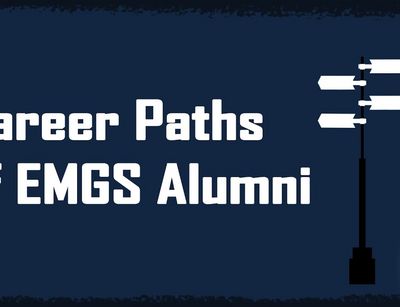In this degree programme, you take an in-depth look at globalisation and the accompanying processes in the countries of the Global North and the Global South from an interdisciplinary perspective. This means that approaches are combined from various subjects (e.g., global history, political science and cultural studies). One particular advantage of this programme lies in the international composition of the cohorts and the integrated study stay abroad.
Fragen zur Bewerbung?
- Bewerbungshotline (10.06.2025 bis 15.08.2025)
Das Studierendensekretariat unterstützt Sie telefonisch:
Montag – Freitag, 11 – 14 Uhr
+49 341 97-32088 - Bewerber:innen aus dem Ausland
Bitte wenden Sie sich an die Stabsstelle Internationales. Unter „Kontakt und Beratung“ finden Sie Telefonsprechzeiten und die Möglichkeit, einen Beratungstermin zu buchen. - Bewerber:innen für einen weiterbildenden Studiengang
Nutzen Sie bitte direkt die im Studiengang angegebenen Kontakte für Ihre individuelle Beratung.
Auf einen Blick
-
Studienrichtung
social sciences -
Studientyp
postgraduate -
Abschluss
Master of Arts -
Lehrsprache
English -
Studienform
full-time, part-time -
Studienbeginn
winter semester -
Zulassungsbeschränkung
national admission restriction -
Regelstudienzeit
four semesters
-
Leistungspunkte
120
Zugangsvoraussetzungen
- Completion of a six-semester BA programme in history or cultural studies, a six-semester BA programme in social sciences or economics, or a degree recognised as equivalent by law or by the competent state authority where a minimum of 15% of the courses were directly relevant to the global studies field;
- Knowledge of English at B2 level of the Common European Framework of Reference for Languages or UNIcert®-Stufe II of the AKS, to be proven by one of the internationally recognised tests; this proof is not necessary for English native speakers and students who obtained their previous degree from an English-speaking higher education institution;
- Certificates proving knowledge of a second modern foreign language at A2 level of the Common European Framework of Reference for Languages.
The faculty will check whether the above requirements have been met and then issue an official notification. This serves as proof that the candidate meets the admission requirements.
Inhalte
In this degree programme, you take an in-depth look at globalisation and the accompanying processes in the countries of the Global North and the Global South from an interdisciplinary perspective. This means that approaches are combined from various subjects (e.g., global history, political science and cultural studies).
One particular advantage of this programme lies in the international composition of the cohorts and the integrated study stay abroad. The degree programme is offered in cooperation with 14 partner universities. These are: Ghent University (Belgium), Roskilde University (Denmark), the University of Wroclaw (Poland), the University of Vienna (Austria), Addis Ababa University (Ethiopia), Dalhousie University (Canada), Fudan University (China), Jawaharlal Nehru University (India), Macquarie University (Australia), the University of Otago (New Zealand), the University of California, Santa Barbara (US), Stellenbosch University (South Africa) and the University of Yaoundé I (Cameroon).
In conceptual terms, the programme stands out from comparable degree programmes above all due to its understanding of the historical path dependence of the position and strategies of individual world regions in global networking, as well as its self-reflective and comparative approach to analysing the relationships between the Global North and the Global South. A further strength of the programme is its combination of courses on the increasing networking of markets, production chains, political organisations and constructs, societies and cultures, as well as the growing role of global mobility.
The degree course is an interdisciplinary and international course of study. On the basis of findings, theories and methods from the fields of history, cultural studies, the humanities and social sciences, the programme aims to enable students to engage responsibly and on an academic level with globalisation, and its accompanying processes in the countries of the Global North and South, and to work independently in this field.
The master's programme comprises 120 credit points, of which 20 credit points are awarded for the master's thesis. The thesis is written during the course, usually in the second year.
The course is divided into four semesters. You will study abroad for at least one of the two years. You will study the following areas:
- Global History
- International Studies
- Methods for the Study of Globalisation
- World Orders under the Global Condition
- Cultural Transfers under the Global Condition
- Global Studies Colloquium
- Winter and Summer School
- Master’s thesis
In addition to these compulsory modules, in the second and third semesters you will choose regionally focused modules (two out of four):
- Regions in Globalisation Processes: Africa and the Near East
- Regions in Globalisation Processes: The Americas
- Regions in Globalisation Processes: Asia and the Middle East
- Regions in Globalisation Processes: Europe
In the fourth semester, you will select one module from the two systematic elective modules ‘World Orders under the Global Condition’ and ‘Cultural Transfers under the Global Condition’ and take the compulsory module ‘Global Studies Colloquium 2’ alongside your master's thesis. All students complete the ‘Academic Writing and Research Skills’ module during the third and fourth semesters.
- International, English-language degree programme
- Joint Degree from multiple universities
- Integrated study stay abroad
- Integrated winter and summer school
- Possibility to complete an internship
The international mix of the students as well as the academics teaching the programme, combined with the fact that courses are taught in English, means that graduates will have already prepared for a career in an international environment during their studies.
Depending on the combination with professional qualifications from undergraduate study, graduates may begin careers in intergovernmental and supranational authorities, non-governmental organisations, development cooperation, the field of intercultural mediation, but also business and management.
The research focus of this degree programme also enables you to begin a doctorate and to continue with an academic career.
- An internship in an ongoing research project at the Global and European Studies Institute or one of its partner institutions is part of the degree programme.
- Integrated study stay abroad: During the first or second year of study, students are required to spend two semesters studying abroad at one of the European partner universities (London, Roskilde, Vienna and Wroclaw). In addition, students can spend one semester at one of the non-European partner universities of the Erasmus Mundus Global Studies Consortium. Students who choose the specialisation “Global Studies: Peace and Security in Africa” complete the degree program at Addis Ababa University and come to Leipzig University for their second semester.
Bewerbung
- Course start: Winter semester
- Admission restriction (NCU): no
- Application period: until 31 May
- Application portal: AlmaWeb
Please visit the degree programme's website for information on the application procedure.
Internationalität
- Only for the Global Studies: A European Perspective programme:
Two semesters of study at an international partner universities - Only for the Global Studies: Peace and Security in Africa programme:
Three semesters of study at an international partner university - Only for the Global Studies and Economic History programme:
Two semesters of study at an international partner university
Compulsory curriculum in English
- Only for the Global Studies: A European Perspective programme:
Award of a double/joint degree with international partner universities (depending on the partner university attended) - Only for the Global Studies: Peace and Security in Africa programme:
Award of a double degree with an international partner university - Only for the Global Studies and Economic History programme:
Award of a double degree with an international partner university


